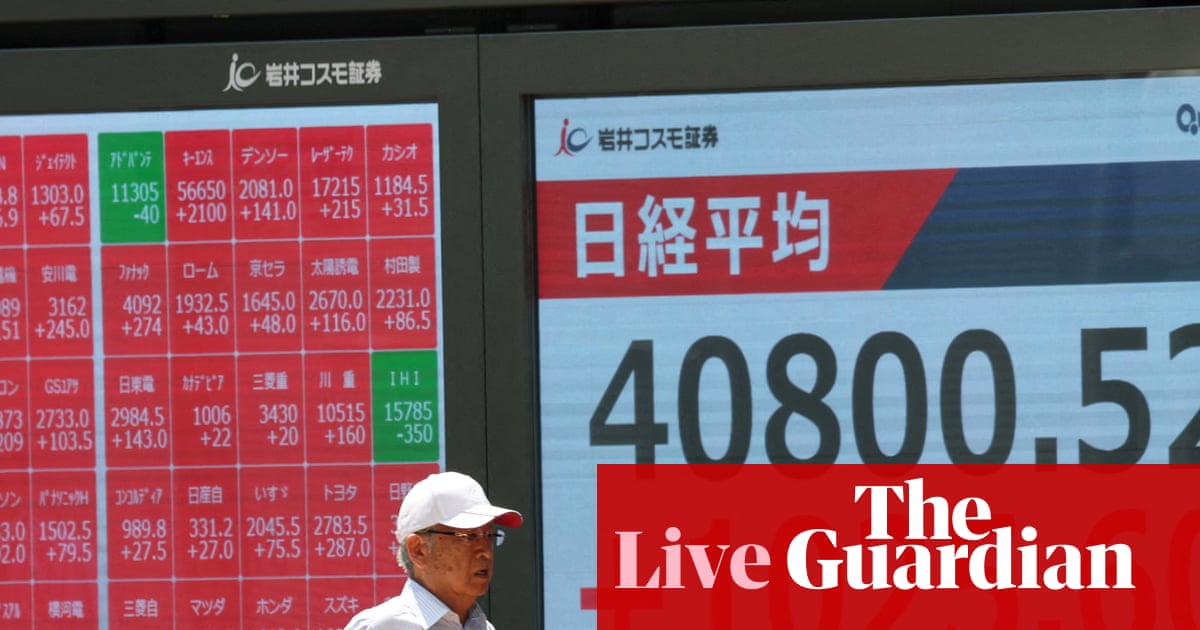T4K3.news
Volkswagen seeks $10 billion investment for tariff exemptions
Volkswagen aims to negotiate lower tariffs with the Trump administration amid revenue slashes.

Volkswagen aims for significant tariff exemptions while revealing financial concerns.
Volkswagen pursues deal with Trump for tariff relief amid revenue cuts
Volkswagen Group, the world’s second-largest carmaker, is seeking a substantial deal with the Trump administration. CEO Oliver Blume plans to invest over $10 billion in the U.S. in exchange for reduced tariffs, particularly the high 27.5% duty on imported vehicles and parts. He highlighted the necessity of a tailored agreement, citing a recent payment of $1.4 billion to U.S. customs. The White House indicated that while it supports foreign investments, building vehicles in the U.S. is the best way to avoid tariffs. The call for a potentially unique trade arrangement highlights Volkswagen's struggle with financial forecasts, which have been impacted by U.S. tariffs. The company revised its 2025 outlook for revenue and margins amidst these challenges, indicating serious concerns over its market position.
Key Takeaways
"Every company has got a special situation in the U.S."
Blume underscores the need for customized tariff negotiations for companies like Volkswagen.
"This is a new development that is anything but positive."
Expert Julian Hinz warns about the unpredictability introduced by bilateral deals.
"The great thing about the rules-based system is that they were valid for everyone."
Hinz advocates for a consistent trade environment over individual negotiations.
Volkswagen's aggressive strategy to negotiate directly with the U.S. government underscores growing tensions around trade policies. As the Trump administration continues to assert control over tariff regulations, companies like Volkswagen risk entering a chaotic trade environment. Engaging in bilateral negotiations for tariff relief could set a precedent where corporations bypass standard trade protocols, leading to unpredictable market conditions. This raises fundamental questions about fairness and consistency within global trade, and the long-term viability of such agreements remains in doubt, as economic experts warn of the dangers posed to overall prosperity.
Highlights
- Volkswagen stands ready to invest $10 billion in the U.S.
- Tariffs threaten to cut into our operating margins significantly.
- Negotiating directly with the government introduces chaos.
- Unpredictability in trade policy could harm long-term prosperity.
Concerns over tariff negotiations and economic stability
Bilateral deals could lead to unpredictable trade policies, raising alarms about long-term economic stability and fairness.
The outcome of this negotiation could reshape trade dynamics between the U.S. and international corporations.
Enjoyed this? Let your friends know!
Related News
:max_bytes(150000):strip_icc()/GettyImages-2227392128-f95994034c8f47c38408febb9d015a6c.jpg)
Stock Markets Climb as Earnings Reports Approach

EU US tariff deal reached
Japan nears $550 billion investment in U.S.
:max_bytes(150000):strip_icc()/GettyImages-2227723550-e694a4f3ee1d4e72bdefbf6236937641.jpg)
Stocks Retreat as Investors Await Key Technology Earnings

LVMH completes $800 million investment in Flexjet

Trump announces EU trade deal with new tariffs

Economic confidence reaches historic low amid tax worries
US and China engage in pivotal trade discussions in Stockholm
